Related Research Articles
Ultra-wideband is a radio technology that can use a very low energy level for short-range, high-bandwidth communications over a large portion of the radio spectrum. UWB has traditional applications in non-cooperative radar imaging. Most recent applications target sensor data collection, precise locating, and tracking. UWB support started to appear in high-end smartphones in 2019.
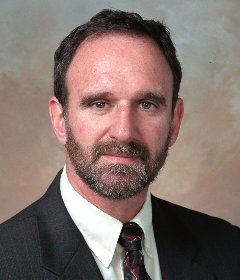
Martin Edward Hellman is an American cryptologist and mathematician, best known for his invention of public-key cryptography in cooperation with Whitfield Diffie and Ralph Merkle. Hellman is a longtime contributor to the computer privacy debate, and has applied risk analysis to a potential failure of nuclear deterrence.

Robert Gray Gallager is an American electrical engineer known for his work on information theory and communications networks.
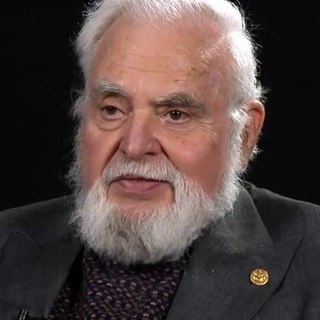
Solomon Wolf Golomb was an American mathematician, engineer, and professor of electrical engineering at the University of Southern California, best known for his works on mathematical games. Most notably, he invented Cheskers in 1948. He also fully described polyominoes in 1953. He specialized in problems of combinatorial analysis, number theory, coding theory, and communications. Pentomino boardgames, based on his work, would go on to inspire Tetris.
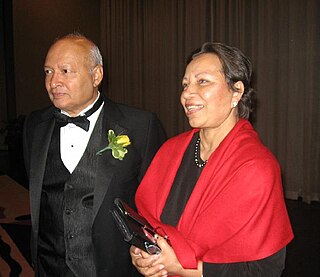
Thomas Kailath is an Indian born American electrical engineer, information theorist, control engineer, entrepreneur and the Hitachi America Professor of Engineering emeritus at Stanford University. Professor Kailath has authored several books, including the well-known book Linear Systems, which ranks as one of the most referenced books in the field of linear systems.
Arun N. Netravali is an Indian–American computer engineer credited with contributions in digital technology including HDTV. He conducted research in digital compression, signal processing and other fields. Netravali was the ninth President of Bell Laboratories and has served as Lucent's Chief Technology Officer and Chief Network Architect. He received his undergraduate degree from IIT Bombay, India, and an M.S. and a Ph.D. from Rice University in Houston, Texas, all in electrical engineering. Several global universities, including the Ecole Polytechnique Federale in Lausanne, Switzerland, have honored him with honorary doctorates.
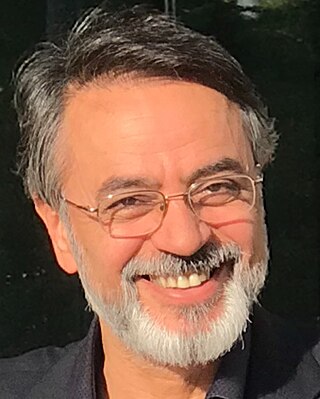
Jawad A. Salehi, IEEE Fellow & Optica Fellow, born in Kazemain (Kadhimiya), Iraq, on December 22, 1956, is an Iranian electrical and computer engineer, pioneer of optical code division multiple access (CDMA) and named Highly Cited Researcher. He is also a board member of Academy of Sciences of Iran and a fellow of Islamic World Academy of Sciences. He was also elected as a member of Iranian Science and Culture Hall of Fame in Electrical Engineering, October 2010.
Sergio Verdú is a former professor of electrical engineering and specialist in information theory. Until September 22, 2018, he was the Eugene Higgins Professor of Electrical Engineering at Princeton University, where he taught and conducted research on information theory in the Information Sciences and Systems Group. He was also affiliated with the program in Applied and Computational Mathematics. He was dismissed from the faculty following a university investigation of alleged sexual misconduct.
Jack Keil Wolf was an American researcher in information theory and coding theory.

Asad Ali Abidi is a Pakistani-American electrical engineer. He serves as a tenured professor at University of California, Los Angeles, and is the inaugural holder of the Abdus Salam Chair at the Lahore University of Management Sciences (LUMS). He is best known for pioneering RF CMOS technology during the late 1980s to early 1990s. As of 2008, the radio transceivers in all wireless networking devices and modern mobile phones are mass-produced as RF CMOS devices.
IEEE 802.15.4a was an amendment to IEEE 802.15.4-2006 specifying that additional physical layers (PHYs) be added to the original standard. It has been merged into and is superseded by IEEE 802.15.4-2011.
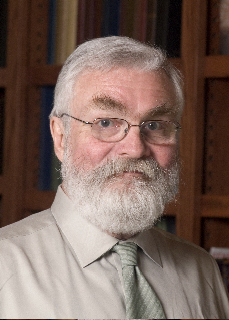
Robert M. Gray is an American information theorist, and the Alcatel-Lucent Professor of Electrical Engineering at Stanford University in Palo Alto, California. He is best known for his contributions to quantization and compression, particularly the development of vector quantization.
Moe Z. Win is a Burmese-American mathematician and electrical engineer known for his work in wireless communications. He is currently a professor at the Massachusetts Institute of Technology.
The IEEE Eric E. Sumner Award is a Technical Field Award of the IEEE. It was established by the IEEE board of directors in 1995. It may be presented annually, to an individual or a team of not more than three people, for outstanding contributions to communications technology. It is named in honor of Eric E. Sumner, 1991 IEEE President.

John Mathew Cioffi is an American electrical engineer, educator and inventor who has made contributions in telecommunication system theory, specifically in coding theory and information theory. Best known as "the father of DSL," Cioffi's pioneering research was instrumental in making digital subscriber line (DSL) technology practical and has led to over 400 publications and more than 100 pending or issued patents, many of which are licensed.
Robert W. Brodersen was a professor emeritus of electrical engineering, and a founder of the Berkeley Wireless Research Center (BWRC) at the University of California, Berkeley.
Professor Shlomo Shamai (Shitz) (Hebrew: שלמה שמאי (שיץ) ) is a distinguished professor at the Department of Electrical engineering at the Technion − Israel Institute of Technology. Professor Shamai is an information theorist and winner of the 2011 Shannon Award.

Harold Vincent Poor FRS FREng is the Michael Henry Strater University Professor of Electrical Engineering at Princeton University, where he is also the Interim Dean of the School of Engineering and Applied Science. He is a specialist in wireless telecommunications, signal processing and information theory. He has received many honorary degrees and election to national academies. He was also President of IEEE Information Theory Society (1990). He is on the board of directors of the IEEE Foundation.
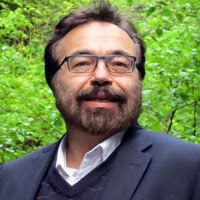
Georgios B. Giannakis is a Greek-American Computer Scientist, engineer and inventor. He has been an Endowed Chair Professor of Wireless Telecommunications, he was Director of the Digital Technology Center, and at present he is a McKnight Presidential Chair with the Department of Electrical and Computer Engineering at the University of Minnesota.
Theodore (Ted) Scott Rappaport is an American electrical engineer and the David Lee/Ernst Weber Professor of Electrical and Computer Engineering at New York University Tandon School of Engineering and founding director of NYU WIRELESS.
References
- 1 2 "NAE Members Directory - Dr. Robert A. Scholtz". NAE . Retrieved October 2, 2011.
- 1 2 "IEEE Eric E. Sumner Award Recipients". IEEE. Archived from the original on January 12, 2013. Retrieved October 2, 2011. See section 2006 - Robert A. Scholtz and Moe Z. Win.
- ↑ "Robert Scholtz at USC".
- ↑ "Fellow Class of 1980". IEEE. Archived from the original on April 13, 2010. Retrieved October 2, 2011.
- ↑ "IEEE Fellows 1980 | IEEE Communications Society".
- ↑ "IEEE Donald G. Fink Prize Paper Award Recipients" (PDF). IEEE. Archived from the original (PDF) on November 24, 2010. Retrieved January 2, 2011.
- ↑ "IEEE Eric E. Sumner Award Recipients" (PDF). IEEE. Archived from the original (PDF) on June 19, 2010. Retrieved October 2, 2011.
- ↑ Robert Arno Scholtz at the Mathematics Genealogy Project